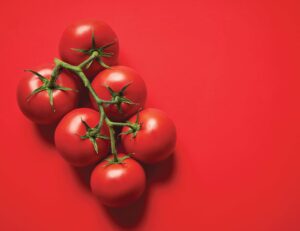The holiday season is almost upon us and this year is no different when it comes to stress with running around preparing food, buying gifts, decorating and dealing with hard to please relatives. But with the advent of the COVID-19 pandemic in March, anxiety and depression appear to have skyrocketed.
The number of Americans suffering from mental health disorders like these has more than tripled during COVID-19 according to a new survey from the Johns Hopkins Bloomberg School of Public Health published by JAMA. Stress and anxiety can trigger symptoms in the gut, and gastrointestinal (GI) inflammation sends signals to the brain and has been linked to mental illnesses including anxiety and depression.
The brain and gut have such a strong connection that if one is distressed, it can directly affect the other. The gastrointestinal tract (GIT) system is highly sensitive to emotion — a distressed intestine can send signals to the brain and vice versa, according to Harvard Health. A troubled gut can be the cause of, or be the result of, depression, stress, and anxiety. The gut is connected to the brain via the vagus nerve, the enteric nervous system, and the gut-brain axis. The vagus nerve is a two-way information highway that connects 200 – 600 million nerve cells between the intestines and brain. Many of us have felt this gut-brain link. Have you ever been too stressed to eat or felt butterflies in your stomach? This perceived stress, anxiety, and nervousness isn’t just in your head — it can lead to inflammation in your gut and beyond. The vagus nerve supplies motor parasympathetic fibers to all organs except the adrenal glands, all the way from the neck down to the second segment of the transverse colon. It helps regulate heart rate, speech, sweating, and various gastrointestinal functions.
The enteric nervous system connects with the central nervous system. It has been referred to as a “second brain” because of its ability to operate autonomously and communicate with the central nervous system through the parasympathetic (i.e., via the vagus nerve) and sympathetic nervous systems. Your gut bacteria can communicate with your brain. You have as many neurons in your gut as a small cat has in its entire body! Some of the gut bacteria create neurotransmitters, some help to digest food, and some produce vitamins.
Given the importance of our gut microbiome, homeostasis of the bacterial community within the gut is key to ensuring mood stability. A shift away from bacterial homeostasis results in a dysbiosis that may cause gastrointestinal dysfunction. Even without a major gastrointestinal disruption, an imbalance in the bacterial population still has a direct effect on mood and mood stability.
In functional medicine there is a saying, “Fire in the gut means fire in the brain.” In other words, if your gut is inflamed, your brain is too. Infections like SIBO (Small Intestinal Bowel Overgrowth), bacterial dysbiosis, parasites, yeast overgrowth, and H. pylori can all be causes of inflammation. Intestinal hyperpermeability (leaky gut) and food sensitivities can also cause inflammation. Inflammation hitting the brain can make us irritable, angry, and antisocial. When all the happy, calming neurotransmitters are compromised, you can feel anxious, depressed, and out of sorts. In addition, we make about 400 times more serotonin (the feel-good neurotransmitter) in the gut than in the brain, so it’s no wonder that we are an anxious, panic-stricken, more depressed and angry society when so many people in our modern age have poor gut health.
One of the most efficient ways to calm the vagus nerve is through dietary change. Just as emotions send messages to your gut, food sends messages to your brain. There are many drivers of gut inflammation that lead to depressive symptoms. Processed foods, often the bedrock of the Standard American Diet (SAD), are foreign to our bodies. When we eat highly processed foods, our gut cells set off the alarm of inflammation. Further, many people are unknowingly eating inflammatory foods, like gluten and dairy, that cause allergenic reactions too mild for most people to notice. Sugar, artificial sweeteners, and casein proteins (found in dairy) have been shown to activate inflammation. In addition, if you’re taking a nutrient depleting medication like the birth control pill, you are at an increased risk for nutrient deficiencies. Medications that block acid like PPIs (Nexium, Protonix, Prilosec, etc.) and H2 blockers (Zantac, Pepcid, etc.), as well as those used in diabetics, can create nutrient deficiencies that manifest as anxiety and depression as well. It’s difficult to stave off sugar and gluten around the holidays, especially if we are baking with our loved ones. Moderation is key to helping prevent the holiday angst and blues that afflict thousands every year.
Start by eating a clean diet that will grow diverse gut bacteria. First, you take out items that are disruptive to the gut microbiome, then begin to add foods that are good for it and improve diversity. Eliminate processed foods, increase fermented foods, focus on antioxidants (green tea, dark chocolate), eat vegetables, and think of meat as a side. Center your meal around vegetables! Invest in good organic food. To avoid taking pills for your anxiety or depression, try buying organic — it could help you feel a lot better. Between working on your psychological issues and your gut health, you will be well on your way to reducing your depression and anxiety, especially around the holidays.
For guidance on improving your gut health back for mood stabilization, overall health and wellness, and quality of life, make an appointment with Zoom at TLC Medical Centre Pharmacy. Through in-depth testing, we can identify the gut related issues that permeate other areas of your health and develop nutritional and lifestyle plans tailored to your needs. If you’re sick and tired of being sick and tired and not getting anywhere with your health, invest in your health today for a healthier tomorrow.






